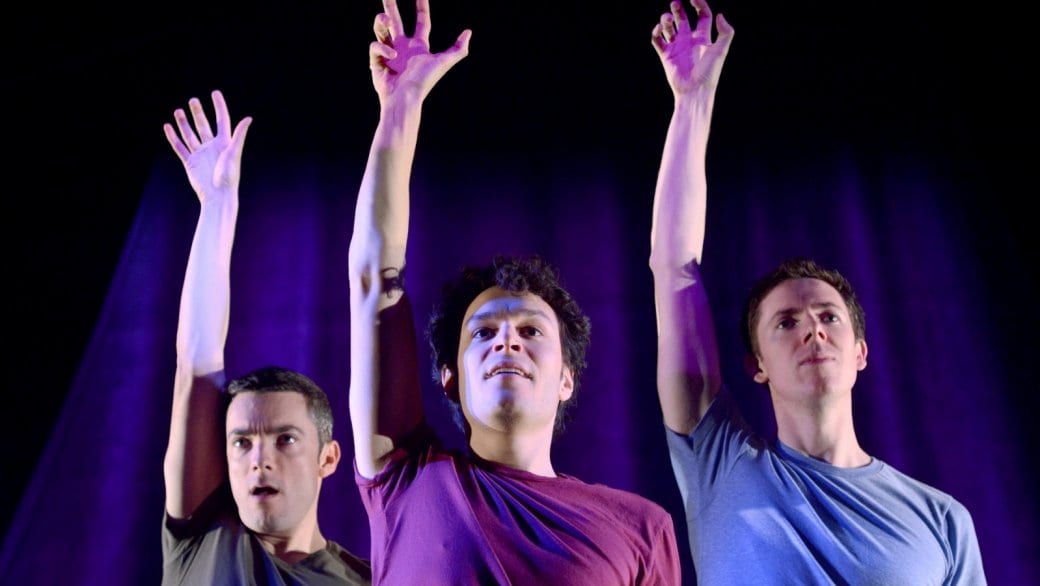When Damien Atkins, Paul Dunn and Andrew Kushnir first set out to create The Gay Heritage Project, they knew it could not simply be a dry exploration of the queer community’s place in history.
“We are very deliberate in calling it The Gay Heritage Project and not The Gay History Project,” Atkins says. “Heritage encompasses history, as well as the present moment and the future. We think of heritage as a verb, not a noun. Heritage exists if you perform it, and this is us doing heritage.”
For the trio, heritage also points to the idea of belonging — and how connecting to people in the past can help us create community now.
“What you experience through the work are three individuals trying to explore this concept of belonging beyond generational lines, intercultural lines and geographical lines,” Atkins says.
Committed to not appropriating other people’s voices, the trio used their own cultural heritages as a starting point. From there, they set out to discover the connections through a more personal lens.
For Dunn, whose original investigation was into gays in the military, he quickly realized that his connection was much bigger than just a single government entity. “It wasn’t just about discrimination, it was about a systematic hunting out and persecution by governments,” he says.
As Atkins delved into the AIDS crisis, he began to wonder what happens to one’s heritage when it is decimated. “What kind of effect did that have on the generation that came after, who no longer had many role models or grew up, as I did, with an intrinsic fear about sex?”
Kushnir used his Ukrainian heritage to make a connection to the role models he believes the queer community so desperately needs.
“When I came out it was probably 10 years before I found someone that identified as both gay and Ukrainian,” he says. “For a long time I felt I was a unicorn, an impossible creature.”
Ultimately, the trio says, The Gay Heritage Project is a celebration of our community’s stories shared on stage.
“The play ranges in tone from the very serious to the very fun,” Atkins says. “And even though there is a lot of philosophical discussions in the play, it won’t make anyone feel stupid.”
“By theatricalizing our investigation, we are inviting others that might be curious about their own heritage, queer or otherwise, to explore it for themselves,” Kushnir says.
The Gay Heritage Project
Wednesday, March 2–Saturday, March 19, 2016
The Cultch, 1895 Venables St, Vancouver
thecultch.com/events/the-gay-heritage-project

 Why you can trust Xtra
Why you can trust Xtra